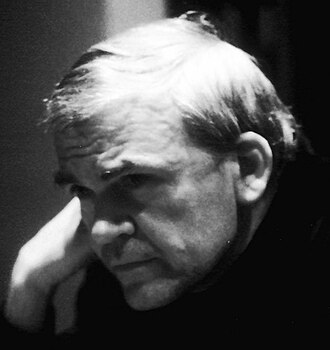從東歐回來近兩個月,最忘不了的是布拉格。感覺不寫點什麽對不起這座美麗的曆史文化名城:對不起布拉格古堡和查理大橋(神聖羅馬帝國和波希米亞王國京城的標誌性建築);對不起卡夫卡住過的小屋黃金巷22號(在那裏買了本台灣出版的卡夫卡繪畫集);對不起哈謝克的好兵帥克(雖然沒有時間到有名的帥克餐廳品味捷克美食);尤其對不起在網上看過的電影《布拉格之戀》(這部據昆德拉小說改編的情色政治電影,像中國名劇《桃花扇》一樣,以兒女之情寫曆史事件,側麵表現1968年的“布拉格之春”)……
翻檢相關書籍和資料,書櫥裏冒出本《杜布切克回憶錄》,此人乃“布拉格之春”的發起人,當時的捷克斯洛伐克共產黨第一書記。我猛然想起此公1992年9月1日莫明其妙地遭遇車禍,不久逝世,這與《布拉格之戀》的男女主人公命運相似,他們也是有幸福感覺之時慘遭車禍而身亡。小說原著與電影改編都是在80年代,隻能說軟禁20年後複出的杜布切克的命運應驗了作家的“預言”。
好在杜布切克留下了回憶錄。中文版是黃英尚譯,新華出版社2001年5月出版。我當時買下,一直沒認真看。這回仔細地讀了一遍,借這位最權威的知曉內幕最多的當事人的眼睛,對“布拉格之春”有了生動具體的了解。感觸頗多,何妨就寫這個話題報答布拉格呢?
這裏先由此談及什麽叫“社會帝國主義”。這是個一度騰囂中國,而20多年來被遺棄的概念。
不妨先抄網上關於蘇軍占領布拉格和捷國全境的資料(這樣基本的曆史事實在解密後的今天誰寫都一樣):
1968年8月20日晚11時,布拉格機場接到一架蘇聯民航客機信號:“機械事故,要求迫降”客機一降落,數十名蘇軍突擊隊員衝出機艙迅速占領機場。幾分鍾後,蘇第105空降師乘30架安-12型運輸機,從駐地白俄羅斯的維捷布斯克起飛,在戰鬥機和轟炸機掩護下,以每分鍾1架的間隔空運到布拉格。1小時後,一輛蘇聯大使館的汽車引路,蘇軍士兵直撲布拉格。
與此同時,蘇聯國防部副部長兼蘇聯陸軍總司令指揮4個蘇軍坦克師、1個空降師和1個東德師從波蘭直搗布拉格(西方向第一方麵軍);駐東德4個蘇軍師、1個德軍師切斷捷西部邊界(西方向第二方麵軍);駐匈牙利蘇軍8個師、匈軍2個師、保加利亞軍一部從南部進攻(西南方向第一方麵軍);蘇波聯軍4個師進攻北部(西方向第三方麵軍)。同時蘇軍對北大西洋公約組織與捷軍開始全麵電子壓製。21日拂曉,蘇軍占領布拉格,逮捕杜布切克等黨政軍領導人。
當時赫魯曉夫不顧兄弟黨之間應有的禮儀,打算從機場直接前往波黨八中全會所在地參加會議,被哥穆爾卡拒絕了這一要求。對波蘭當年6月發生的波滋南事件,赫魯曉夫的應對還算是比較寬容的,蘇軍也按波共要求退駐營房。但對稍後匈牙利爆發的民變,赫魯曉夫卻令蘇軍痛下殺手,共造成匈牙利人2700名死亡、13000名受傷;甚至殘暴地劫持從南斯拉夫駐匈牙利大使館回家的總理納吉,並最終處死了他。
“社會帝國主義”說到底是帝國主義,不論它扯什麽旗幟掛什麽招牌。對於中國來說,從列寧宣稱廢除沙俄時代與中國簽訂的一切不平等條約(自然就包括了歸還沙俄侵占中國的大片領土),到如今“硬漢”普京宣稱“俄羅斯沒有一寸多餘的領土”(直接針對的是日本要求歸還“北方四島”,基本原則則適用於所有國際領土爭端),中蘇(中俄)關係的曲曲折折、恩恩怨怨一言難盡,不說也罷。
~~~~~~~~~~~~~~
布拉格之念 ![]() 精選
精選
||| 推薦到群組
2005年的春天,因參加國際學術會議從北京到訪過捷克首都布拉格,記得當時就被這個充滿古歐風情的魅力之所迷倒了。轉眼十一年過去,有個小小的念頭一直存在心裏,就是能夠重訪布拉格。上周,終於拾得機會,利用暑假,和家人朋友一起,再次徜徉在布拉格老城小方青石塊鋪成的街道上。
第一感物是人非。景依然還是那些景:來往穿梭的有軌電車;擠滿人群的老廣場;碧波粼粼的伏爾塔瓦河; 充滿藝術氣息的查理大橋;登高把全城美景盡收眼底的布拉格城堡......。和十幾年前比,感覺人潮湧動愈加明顯,更為明顯的是同胞遊客隨處可見。還有,好不容易習慣了哥本哈根的高物價,來到布拉格消費,怎一個爽字了得!
在這個彌漫著爛漫氣息,藝術氣息和生活氣息的城市悠閑地呆上幾天,居然生出身份錯位的感覺--以為遊客們是這裏真正的主人,而當地居民隻是熱情而忠實的服務生。
出發之前,在家裏重溫了一遍電影碟片?布拉格之戀?,試圖為這次旅行注入些不同“逼格”的東西--當然,我以前也確實喜歡過朱麗葉比諾什(Juliette Binoche)主演的幾部電影。回過頭來看,有些元素已經漸漸遠離我等的年齡層次。旅遊就是旅遊,把沉重曆史背景下的爛漫而憂傷的愛情故事和懷揣濃濃詩哲味的米蘭昆德拉們擱在一邊,輕鬆愜意看風景也許更為合適。

(1)清晨的伏爾塔瓦河,寧靜而祥和。

(2)遊船穿梭在伏爾塔瓦河上

(3)沐浴夕暉的查理大橋

(4)已近子夜,許多遊客依然在老城廣場上坐著——就那麽坐著,聊著。
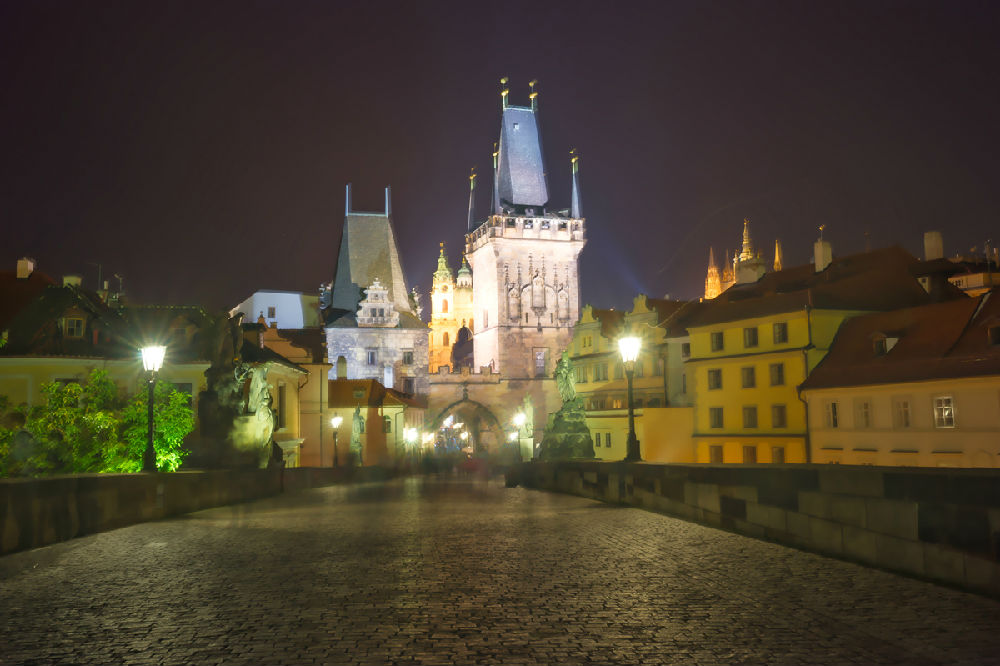
(5)查理大橋一端的夜景
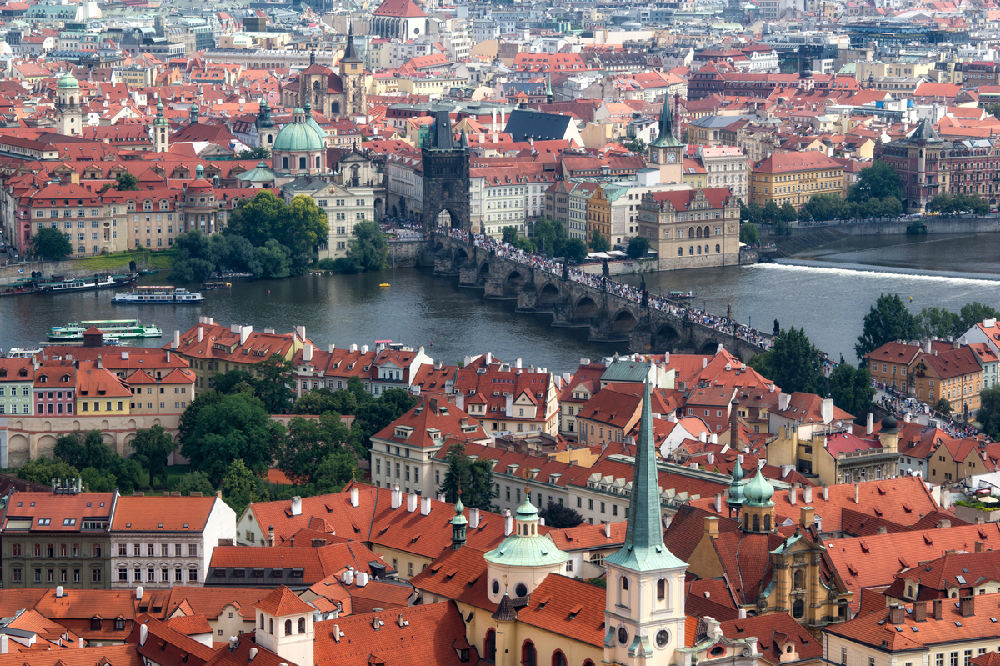
(6)從布拉格城堡俯瞰城區和查理大橋
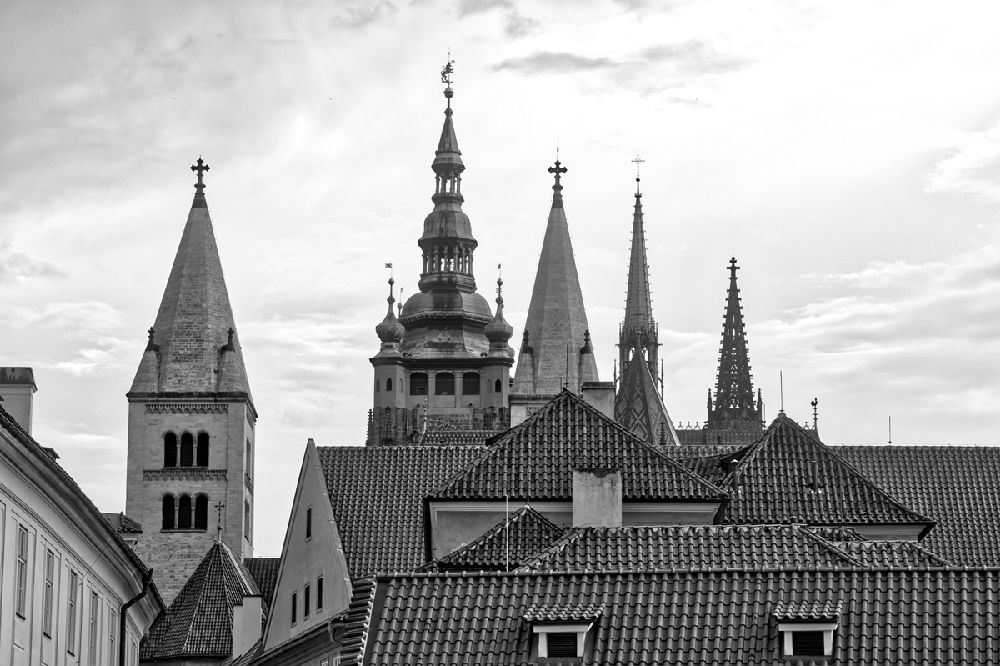
(7)布拉格城堡的教堂尖頂特寫

(8)
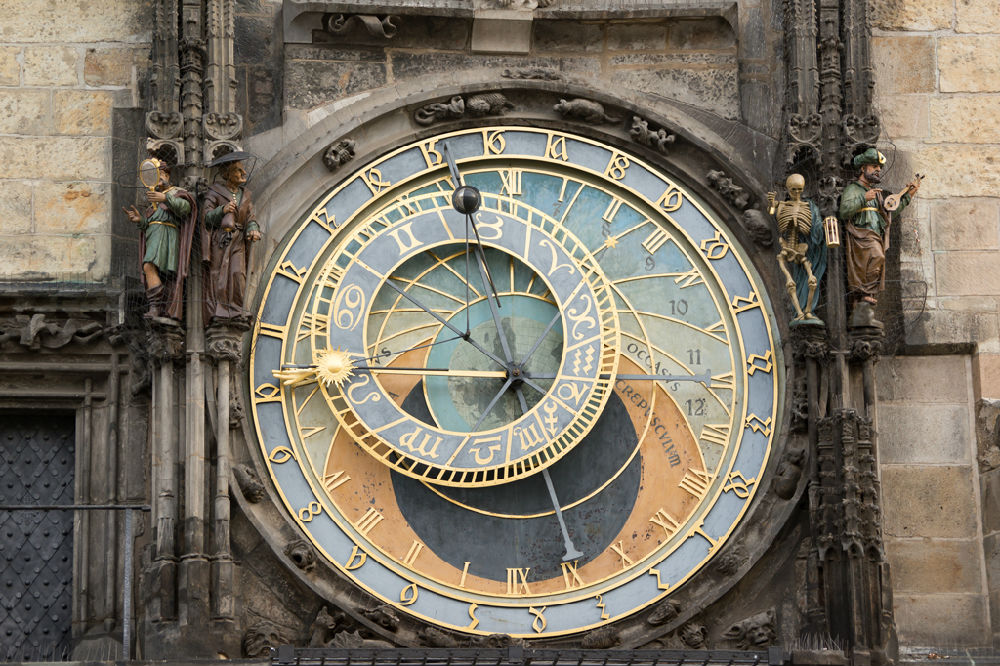
(9)著名的天文鍾。布拉格天文鍾包括三個主要部分:天文鍾麵,代表太陽和月亮在天空中的方位,顯示各種天文資料;“行走的使徒”,每小時顯示使徒和其他移動雕塑;下部的日曆盤代表月份。關於天文鍾的詳盡資料可參考wiki。
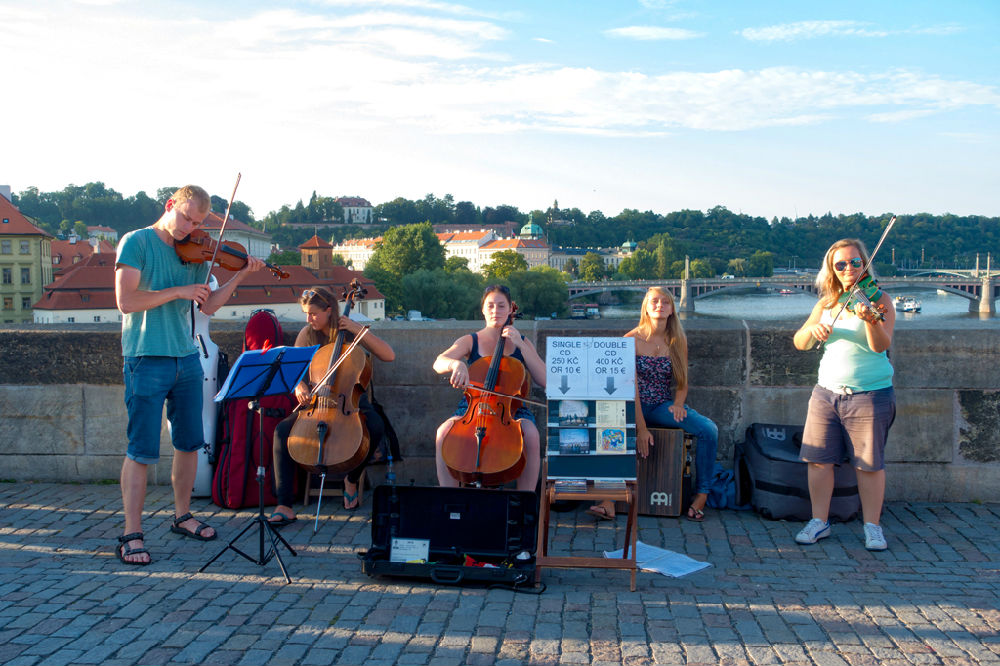
(10)查理大橋上的樂隊表演並推銷他們的作品光碟

(11)查理大橋上的漫畫家為遊客作畫
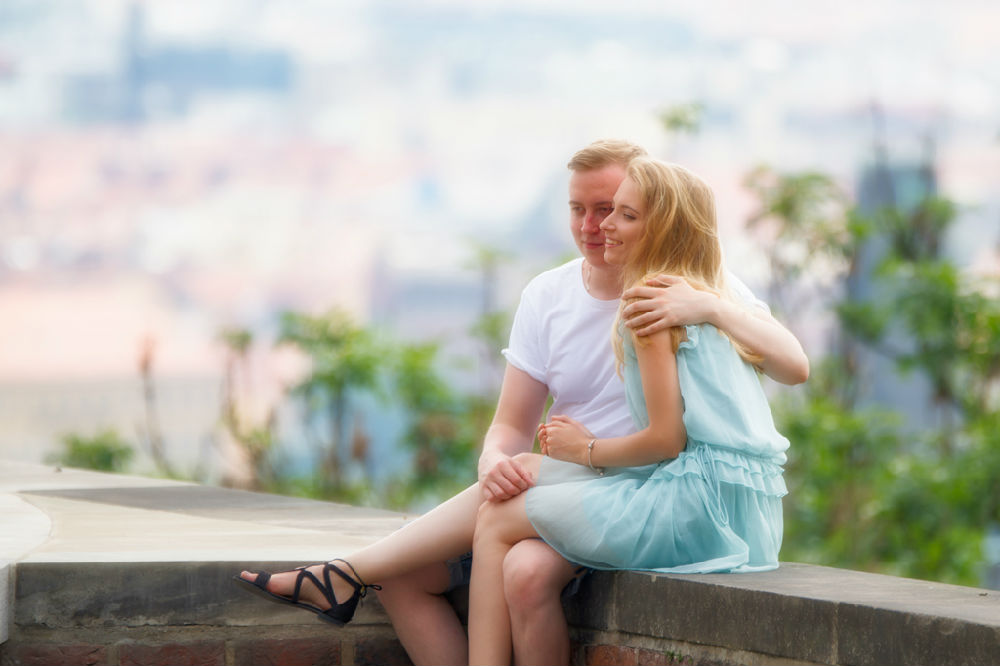
(12)一對戀人正深情地自拍留影——現實版的布拉格之戀
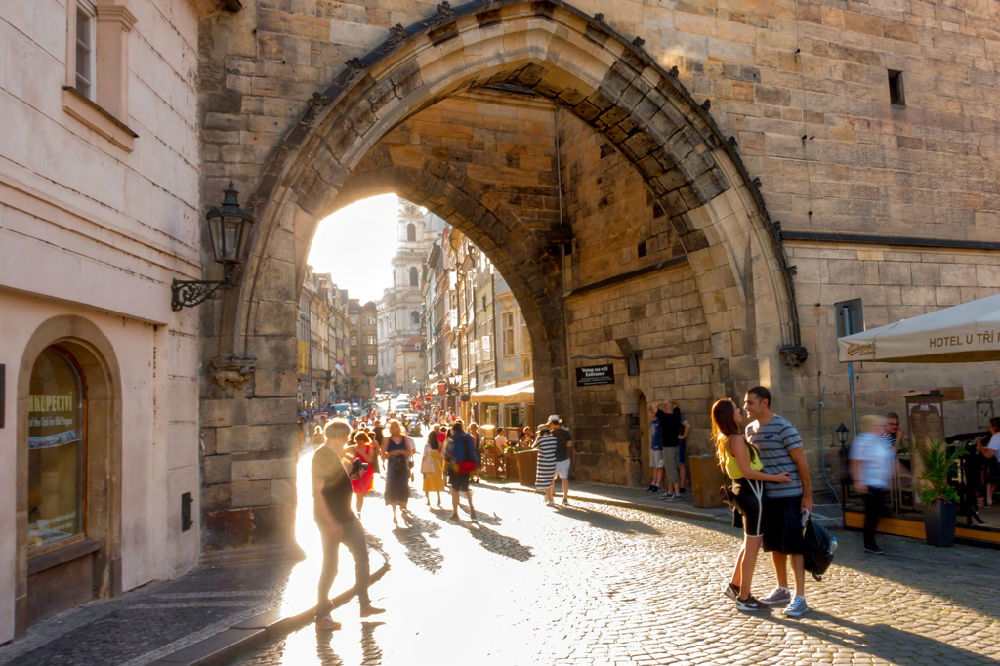
(13)“光天化日”下
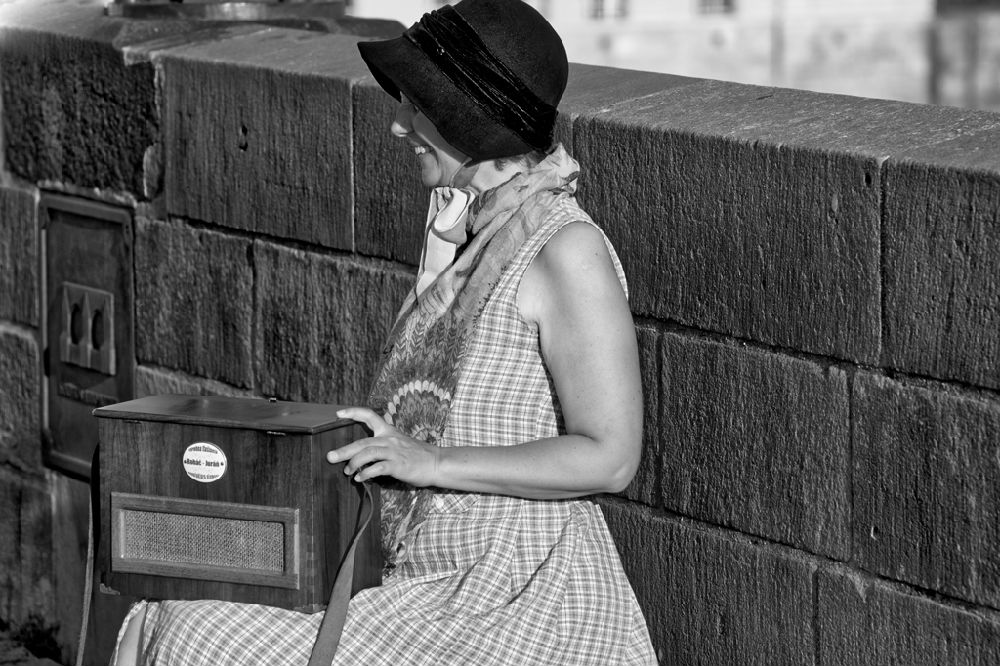
(14)一位婦女身著傳統服飾,在查理大橋上演奏手搖風琴。
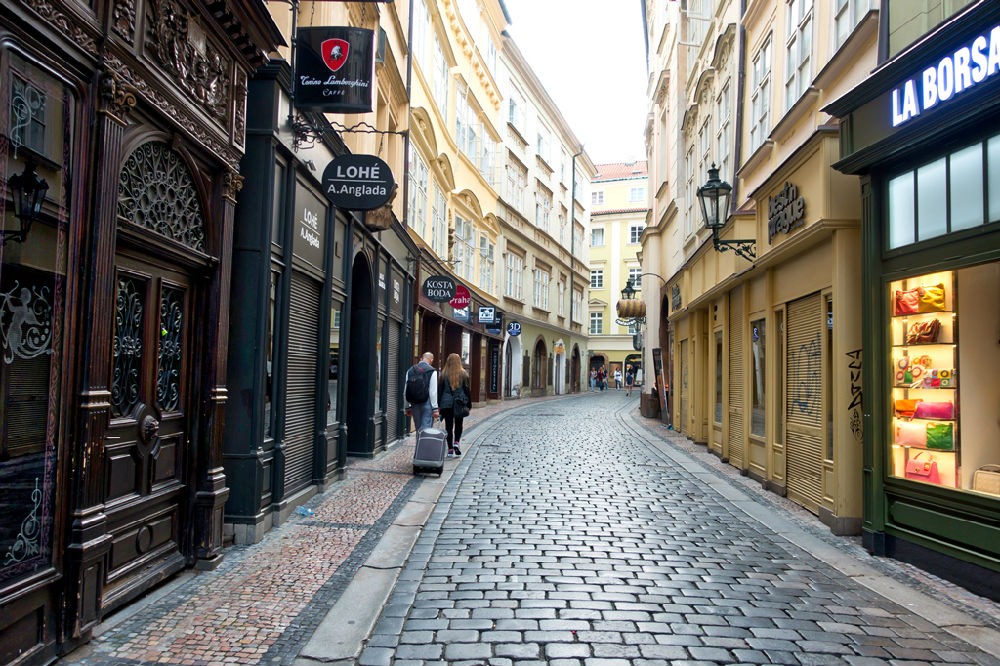
(15)甫至還是離去?
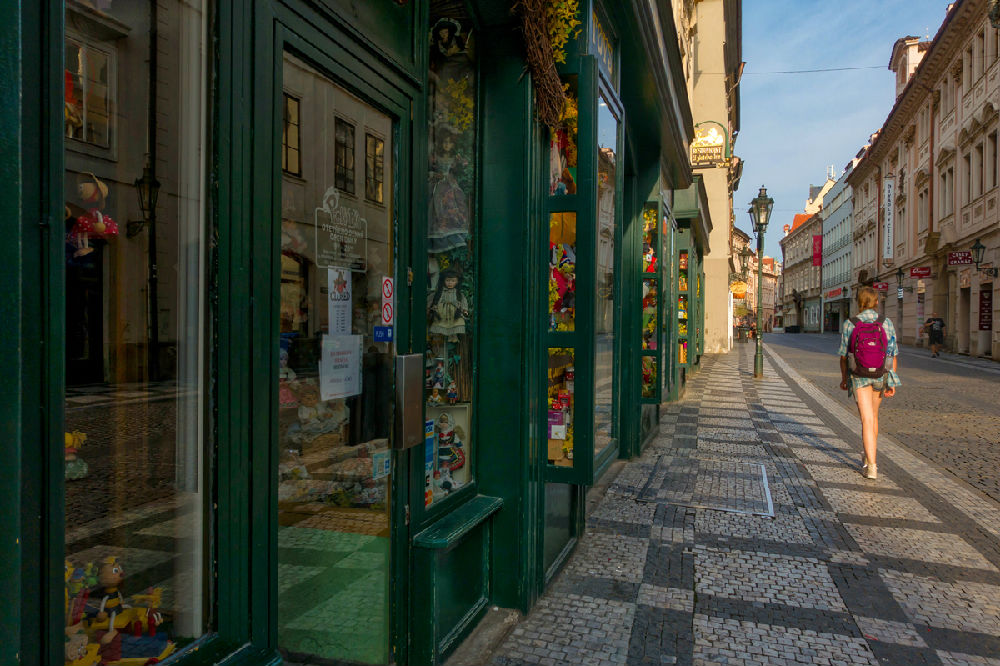
(16)背影
http://blog.sciencenet.cn/blog-665782-994056.html
上一篇:生態之歌
38 李輕舟 王榮林 曾泳春 徐令予 羅德海 徐長慶 陸綺 蔣永華 劉欣 武夷山 劉玉仙 楊正瓴 張叔勇 嶽東曉 高建國 王德華 王春豔 徐曉 杜敏彪 黃永義 李穎業 劉光銀 趙美娣 鍾炳 張紅旗 韓玉芬 黃秀清 吉宗祥 朱曉剛 羅帆 許培揚 寧利中 餘國誌 李勝文 xlianggg jiareng louiexp againstlaw
發表評論 評論 (20 個評論)
- [20]李勝文
- breath-taking - your photos deprived air of surroundings. Magnificent!
- [19]陸綺
- 據一位去中國旅遊的朋友說,他被中國遍地亂竄的小汽車驚呆了,他在想“難道他們都想殺人麽……”
========
又看了一遍照片,又被美哭了
- [18]餘國誌
- 這個城市,值得去至少三次。
- [17]黃秀清
- 歪果仁好浪漫
- [16]崔堯
- 有沒有美食的照片
- [15]韓楓
- 那一對戀人,女孩好漂亮
- [14]張紅旗
- 戀人那個搶拍還有背景的虛化,絕了。
- [13]鍾炳
- 令人向往!
- [12]張士宏
- 期待中!
- [11]李穎業
- 以前不懂政治和曆史,總以為布拉格之春是一種浪漫

- 博主回複(2016-8-2 01:17):現在這個“之春”那個“之春”的多了起來,大家也都明白了。
- [10]黃永義
- 美!
- 博主回複(2016-8-2 01:44):謝謝!
- [9]jiareng
- 喜歡!這兒的街道太幹淨了。
- 博主回複(2016-8-2 01:43):旅遊熱點,不幹淨哪行嗬
- [8]張叔勇
- 想念歐洲通透的陽光
- 博主回複(2016-8-2 01:42):有空就出去走走
- [7]楊正瓴
- 二妞一定隨行?
大妞自立門戶,您有外孫了嗎? - 博主回複(2016-8-2 01:41):三家朋友相約而行,老大有自己的事情。
- [6]張士宏
- 6月去奧地利,順便去捷克CK小鎮,很美麗悠閑的地方!
- 博主回複(2016-8-2 01:25):我們也去了CK,下篇會說。
- [5]xlianggg
-

- 博主回複(2016-8-2 01:19):謝謝!
- [4]蔣永華
- 有人總以為博客沒有意義,我恰恰覺得從別人那裏學一點本身就很有意義。如果再能給別人一點,哪怕是點讚也很好。這樣的句子多好

好不容易習慣了哥本哈根的高物價,來到布拉格消費,怎一個爽字了得!
旅遊就是旅遊,把沉重曆史背景下的爛漫而憂傷的愛情故事和懷揣濃濃詩哲味的米蘭昆德拉們擱在一邊,輕鬆愜意看風景才也許更為合適。 - 博主回複(2016-8-2 01:19):蔣老師高見

謝謝點讚!
- [3]陸綺
- 哇!竟然基本看不到小汽車。好童話的世界啊
- 博主回複(2016-8-2 01:16):老街都是步行街,外圍還是有汽車的。
- [2]table
-

- 博主回複(2016-8-2 01:15):

- [1]曾泳春
- 太愛了!正如我在朋友圈裏回複的那樣:世界文明真的很不均衡,這幾天一直沉浸在非洲,亂就一個字,和歐洲相比,文明差別太大了。昨天參觀了蒙巴薩的城堡,這座印度洋邊的城市就是幾夥歐洲人和阿拉伯人爭來搶去,與本地人似乎沒有關係。
- 博主回複(2016-8-1 21:09):等待看你的印度洋風情
- 博主回複(2016-8-1 21:06):個人覺得,歐洲的現代文明是可以作為標杆的。通過什麽途徑接近或達到可以探討,但不應否認。








